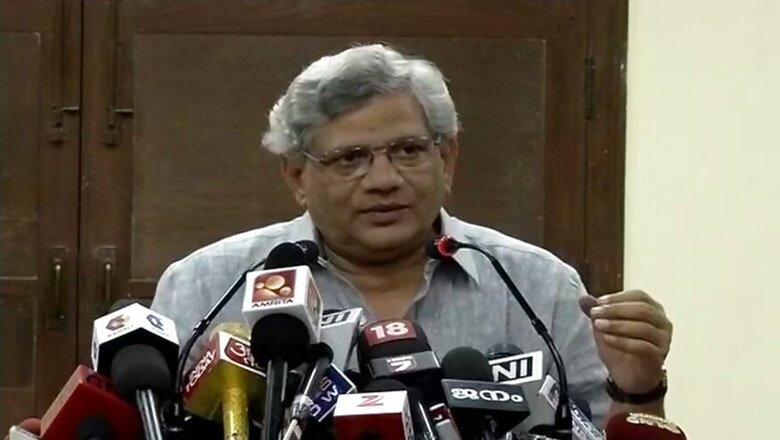
views
After the Opposition’s persistent efforts to corner the government and PM Narendra Modi in Parliament on demonetisation issue failed, the Communist Party of India (Marxist) has taken the issue to the top court in the country.
The CPI(M) through its general secretary Sitaram Yechury, has filed a petition in the Supreme Court challenging the government move of banning Rs 500 and 1000 currency notes in the country.
Branding the government’s demonetisation scheme anti people, the CPI(M) has sought the court’s intervention in the matter and said that the use of old Rs 500 and 1000 rupee notes be allowed till 30th December or until the government pumps in adequate new currency notes.
The Left party has also sought to know from the government as to what measures it is taking for the supply of adequate currency notes in a time bound manner.
Sitaram Yechury said in his petition in the apex court said that the scheme has had no desired effect of curbing black money.
“In 2015-16 the share of fake currency notes was .002 per cent for Rs 100 notes and .009 per cent for Rs 500 notes. It’s estimated by the government that only Rs 400 crore worth fake notes are in circulation at a given point of time," said Yechury
Yechury also attacked government’s slogan that this scheme will result in recovery of black money.
He submitted that black money originates from manipulation of sales, receipts, expenses, production, value of capital stock etc.
“If black money is the target of attack, then it requires multi-pronged approach and effective tax administration. Moreover IT raids over the last 5 years show that only 5 to 6 per cent of the black money is hard cash and rest is accumulated in real estate and bullion, he added.
Yechury further said that the soft approach of the government towards the big loan defaulters also raises questions on its bonafides.
The government’s case that high value currency is used to hoard black money also flies in the face when it issues 2000 rupee note.
“The poor are adversely affected by the scheme as only 30 per cent of the population has access to banking system. The spread of banks over the country is also uneven with high concentration in class 1 and 2 cities. Consequently people living in rural areas are worst victims of demonetisation," said Yechury.




















Comments
0 comment